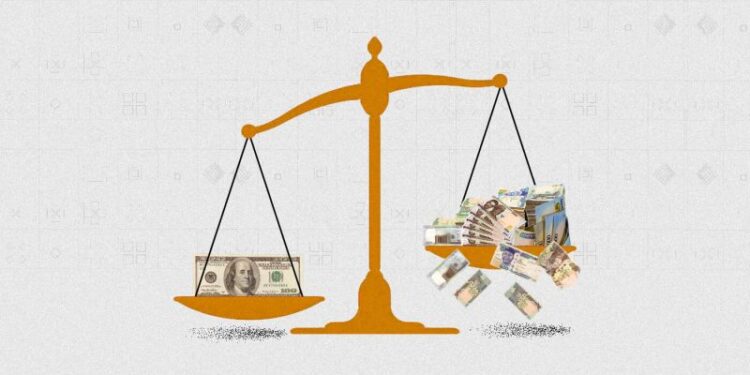The Central Bank of Nigeria (CBN) was enveloped in tension as the Naira plummeted to an unprecedented low of N1,548.63 per dollar, marking a significant milestone in the currency’s downward spiral. This latest development has sparked widespread concern about the future trajectory of the Naira and its implications for Nigeria’s economy.
With the Naira’s value depreciating by a staggering 33.87%, dropping to N456.73 weaker than the previous closing rate, the severity of Nigeria’s economic challenges has come into sharp focus. The implications of this dramatic decline extend beyond economic realms, raising the specter of social and political unrest as citizens grapple with soaring prices and diminishing purchasing power.
As the currency freefalls, the specter of unrest looms large. A population grappling with soaring prices, diminishing purchasing power, and economic instability could turn to the streets in protest, further exacerbating the nation’s challenges. The ripple effect could extend beyond economic spheres, potentially fanning the flames of social-political discontent.
The situation has prompted discussions about “JAPA,” a colloquial term indicating the desire to leave one’s home country. The allure of escaping economic turmoil has become a stand recommendation, particularly among the younger demographic. However, one must ponder the question: Where does one run when the world is on fire?
However, the idea of seeking refuge elsewhere in a global landscape fraught with its own challenges underscores the complexities of the situation.
Stephen, a development economist, shed light on the Naira’s predicament, emphasizing its implications for international trade. He explained that while the depreciation may reduce imports and boost exports, it also necessitates a shift towards locally made goods to bolster the economy. Despite challenges, Nigeria has seen positive signs, with export values surpassing imports, indicating potential for economic growth.
As Nigeria grapples with the Naira’s precarious position, addressing the underlying causes of its decline becomes imperative. The CBN’s assertion that the Naira is undervalued is met with skepticism amidst persistent depreciation trends. While the prospect of the Naira hitting 2000 to a dollar in 2024 remains uncertain, a strategic and comprehensive response is indispensable to navigate the challenges and steer Nigeria towards economic stability.









